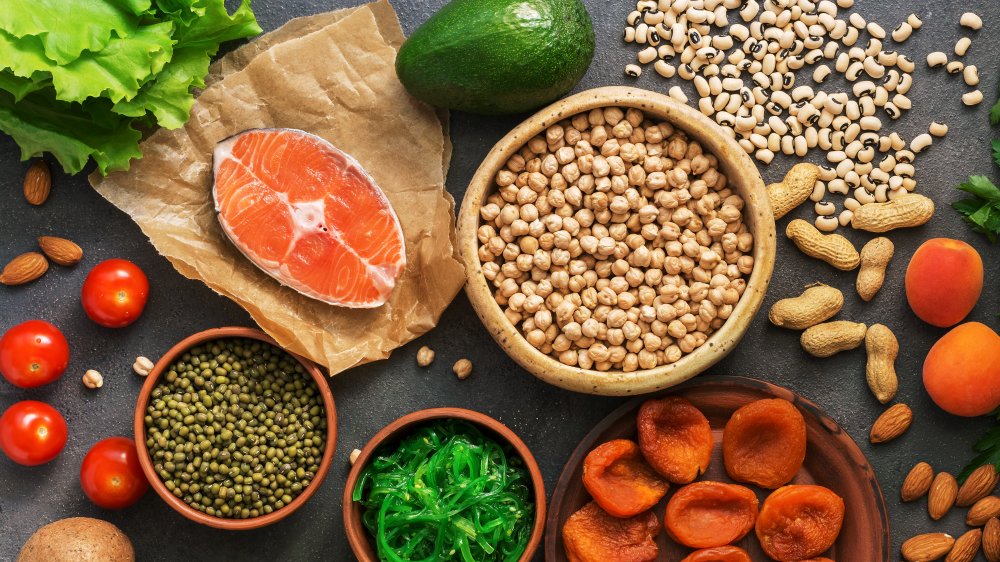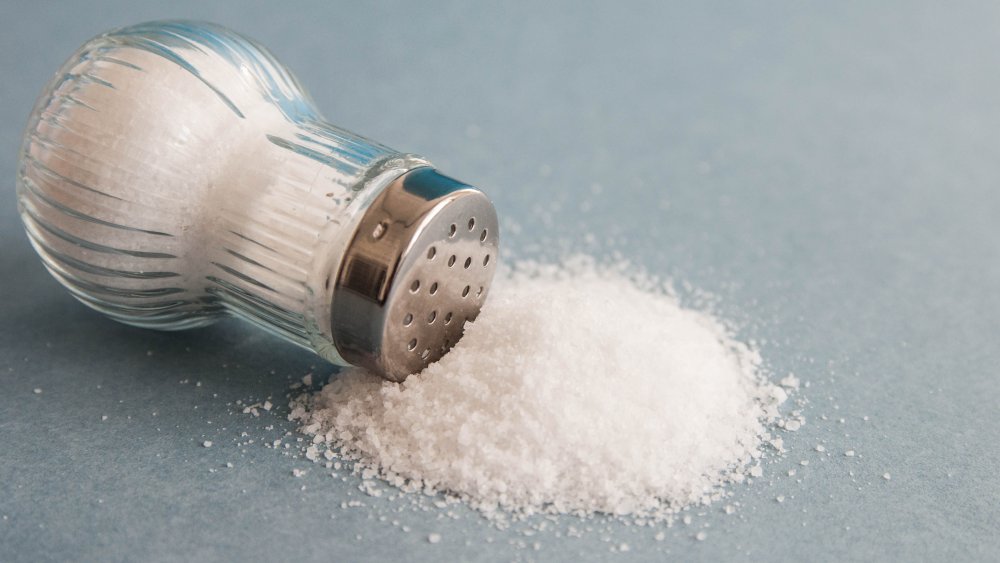The One Thing You Should Eat With Every Meal To Help Lower Blood Pressure
The Centers for Disease Control and Prevention state that in 2017, high blood pressure, or hypertension, was responsible for nearly half a million deaths in the United States alone. While it is normal for blood pressure to fluctuate over the course of a day as blood pushes against the walls of your arteries, it can cause a host of health issues and damage your heart if it stays consistently high or higher than average for an extended period of time.
Symptoms of high blood pressure include headaches, shortness of breath, and nose bleeds. But you do not need to be experiencing any of these to have high blood pressure, as, according to the Mayo Clinic, this condition usually develops slowly over years and is often present without any signs whatsoever. Luckily, doctors routinely screen for high blood pressure which is incredibly easy to detect. If you are not able to see a doctor regularly, you can get a free blood pressure screening at many pharmacies through a machine that tests for the condition.
While doctors are not sure what causes high blood pressure, some risk factors include stress, a family history of the condition, using tobacco products or drinking heavily, not being physically active, and consuming too much salt. What you fail to include in your meals can also play a role.
What to eat to help lower your sodium intake
If you are concerned about your blood pressure or trying to cut back on the amount of sodium in your diet, The Daily Meal offers some advice on how to reduce your sodium intake. Two small things they say you should try to do are including more whole grains in your diet and monitoring foods that will increase your risk of hypertension so you can try to avoid eating them too frequently.
Another change The Daily Meal suggests is incorporating potassium into every meal. The American Heart Association states this is because extra potassium causes you to lose more sodium in your urine than you normally would. Consuming potassium also eases the tension in the walls of your blood vessels, which can help lower your blood pressure. Among the foods that are rich in potassium are avocados, tuna, grapefruit, lima beans, and spinach. Be sure to check with your doctor before beginning a high-potassium diet, as it can have negative effects on people with kidney issues and those with underlying health conditions or who are taking certain medicines.

